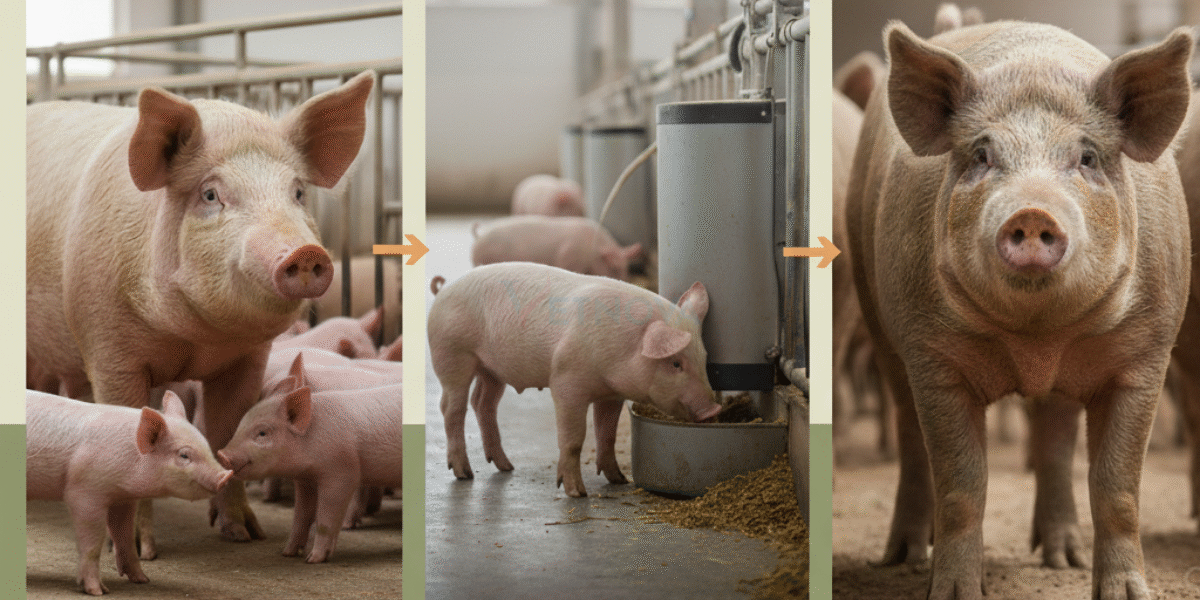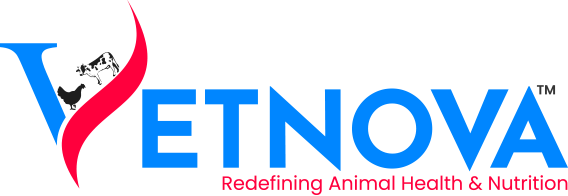Swine Supplement: Enhancing Pig Health and Productivity
In modern pig farming, a swine supplement is the cornerstone of achieving optimal growth, health, and productivity. From accelerating growth rates to supporting immunity and reproductive performance, the right supplementation strategy can make a significant difference. Farmers and veterinarians now rely on scientifically formulated swine feed supplements to meet the complex nutritional needs of pigs at every stage of life. This blog explores the role of swine supplements, the relationship between feed additives and feed supplements, and their impact on pig nutrition.

What is a Swine Supplement?
A swine supplement is a concentrated source of essential nutrients designed to complement the base diet of pigs. These supplements provide vitamins, minerals, amino acids, and other bioactive compounds that may be deficient in conventional feed. While traditional pig feed provides the bulk of energy and protein, it often lacks critical micronutrients necessary for optimal growth, immunity, and reproduction.
Modern swine supplements are formulated using scientific principles of pig nutrition to correct deficiencies, enhance feed efficiency, and ensure that pigs reach their genetic growth potential.
Understanding the Relationship: Feed Additives Vs Feed Supplements
It is essential to clarify a common misconception in pig nutrition: feed supplements are a subset of feed additives. While the terms are often used interchangeably, understanding the distinction can help farmers make better nutritional decisions.
Feed Additives
Feed additives are broad categories of substances added to animal feed to improve its quality, safety, and effectiveness. These include:
- Nutritional enhancers like vitamins, minerals, and amino acids.
- Performance enhancers such as probiotics, enzymes, antioxidants, and flavoring agents.
- Digestive aids and gut health promoters.
Feed additives are not limited to providing essential nutrients; they can also improve digestion, absorption, immunity, and overall performance.
Feed Supplements
Feed supplements, on the other hand, are specialized feed additives that provide essential nutrients missing from the base diet. These include proteins, vitamins, minerals, and other key nutrients. Their main role is to ensure pigs get complete nutrition for growth, reproduction, and immunity.
By understanding that feed supplements are part of the larger feed additive category, farmers and nutritionists can formulate diets that combine both essential nutrient provision and performance-enhancing benefits.
Importance of Swine Feed Supplements
Supporting Growth and Development
One of the key benefits of swine feed supplements is promoting healthy and rapid growth. Pigs require precise amounts of protein, energy, and micronutrients for proper muscle development. Deficiencies can lead to stunted growth, poor feed conversion ratios (FCR), and increased disease susceptibility. Supplements ensure that pigs receive all critical nutrients in a digestible form, enhancing weight gain and farm productivity.
Enhancing Immunity
A well-nourished pig is better equipped to resist disease. Vitamins such as A, D, and E, along with trace minerals like zinc and selenium, support immune system function. Including these in swine supplements reduces the risk of infections, improves survival rates, and aligns with the growing global emphasis on antibiotic-free pork production.
Improving Reproductive Performance
For breeding pigs, nutrition is directly linked to reproductive success. Nutrients like lysine, methionine, and vitamin E and trace minerals improve conception rates, litter size, and piglet survival. Proper supplementation during gestation and lactation is vital for the health of both sows and piglets.
Key Components of Pig Feed Supplements
Proteins and Amino Acids
Proteins are essential for muscle development, tissue repair, and overall growth. Amino acids such as lysine, methionine, and threonine are critical components of pig feed supplements. Balancing these amino acids improves feed efficiency and reduces nitrogen excretion, which is also environmentally beneficial.
Vitamins and Minerals
Vitamins (A, D3, E, B-complex) and minerals (calcium, phosphorus, zinc, selenium, copper) are crucial for metabolic processes, bone formation, preventing anaemia and immune function. Modern swine supplements ensure these micronutrients are provided in the right amounts to prevent deficiencies and associated health issues.
Pig Feed Additives
Pig feed additives, the broader category of which feed supplements are a part, include probiotics, prebiotics, enzymes, antioxidants, and flavour enhancers. These additives:
- Improve gut health and nutrient absorption.
- Enhance feed conversion and growth rates.
- Reduce digestive disorders and oxidative stress.
While feed additives offer performance benefits, feed supplements specifically provide essential nutrients, highlighting the hierarchical relationship between the two.
Benefits of Using Swine Supplements
Improved Feed Efficiency
Supplementing pig diets ensures that animals use their feed more efficiently, leading to better weight gain with less feed. This translates into reduced feed costs per kilogram of weight gained and higher farm profitability.
Enhanced Health and Longevity
Proper supplementation reduces the risk of nutrient deficiencies, supporting stronger immunity and reducing disease-related mortality. Healthier pigs require fewer medical interventions, contributing to cost savings.
Environmental Sustainability
Balanced nutrition through swine feed supplements minimizes nutrient wastage. For example, adequate amino acid supplementation reduces nitrogen excretion, supporting eco-friendly farming practices.
Better Meat Quality
Nutrition directly affects carcass quality. Well-formulated pig feed supplements ensure optimal muscle development, fat composition, and tenderness, meeting consumer demands for high-quality pork products.
Selecting the Right Swine Supplement
Choosing the correct swine supplement requires consideration of several factors:
- Age and Growth Stage: Piglets, growers, and adult pigs have different nutritional requirements.
- Health Status: Animals with previous health issues or compromised immunity may require fortified formulations.
- Feed Composition: Supplements should complement the base diet and correct deficiencies.
- Quality and Safety: Ingredients should meet regulatory standards to ensure efficacy and safety.
Consulting a veterinarian or animal nutritionist helps design a supplementation plan that maximises health and productivity.
Connect with us to know more. Click here
Practical Tips for Using Swine Feed Supplements
- Ensure balanced feeding to prevent nutrient excess or imbalance.
- Monitor pig performance regularly to assess supplement effectiveness.
- Store supplements in dry, hygienic conditions to maintain quality.
Future Trends in Pig Nutrition
The swine industry is moving toward precision nutrition, where diets are tailored to individual pig needs. Innovations in feed formulation, biotechnology, and natural additives are enhancing the effectiveness of swine feed supplements. Consumers’ preference for sustainable, antibiotic-free pork is driving research into probiotics, plant-based additives, and other natural feed enhancers.
Conclusion
A scientifically formulated swine supplement is vital for optimal pig health, growth, and productivity. By understanding that feed supplements are a subset of pig feed additives, farmers can provide complete nutrition while also enhancing overall performance. Proper use of swine feed supplements, alongside effective management practices, ensures healthier pigs, higher feed efficiency, and better meat quality. In modern pig farming, strategic supplementation is no longer optional. It is essential for sustainable, profitable, and scientifically driven livestock production.
